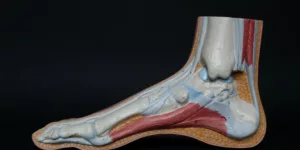Tendons are simply the thick cords that connect your muscles to your bones. Once these tendons become inflamed or irritated, it results in a condition known as tendinitis. Tendinitis usually causes tenderness and acute pain, especially in your knee, heel, wrist, shoulder, or elbow. Fortunately, most tendinitis scenarios can be effectively combated with physical therapy, rest, and medication, with severe cases requiring surgery. This guide will look at the various treatment options for tendon damage and why you should have orthopedic surgery in Clifton, NJ.
What Causes Tendinitis?
Tendinitis can be triggered by many causes, such as a sudden injury or the frequent repetition of the same movement for extended periods. Moreover, most people suffer from tendinitis mainly because their jobs or hobbies involve putting excess stress on particular tendons.
Nonetheless, proper techniques have proven significantly beneficial when involved in repetitive job-related activities or sport movements.
Tendinitis Prevention
At Garden State Pain Control, we provide all our patients with the following prevention measures to help reduce their risk of developing tendinitis:
- Consider adjusting your chair, desktop, and keyboard in accordance with your arm length, height, and daily tasks, or instead, get an ergonomic assessment of your workspace.
- Avoid activities that overload your tendons, especially for extended periods.
- Consider stretching after your workouts to help reduce recurrent trauma on tight tissues and enhance the range of motion of your joints.
- If possible, seek professional instructions or take professional lessons when using new exercise equipment or beginning a new sport.
- Avoid activities or exercises that result in persistent pain in your tendons.
- Consider strengthening the muscles you frequently use in your daily sports or activities to help them withstand excess load and stress.
Home Remedies for Tendinitis
For minor tendinitis cases, some of the home remedies we recommend for tendinitis involve avoiding lifting heavy objects, playing certain sports, or intense twisting or gripping actions that worsen your tendinitis symptoms. Other home remedies for tendonitis include:
- Resting for 2-3 days without moving your tendon.
- Place a bag of frozen peas enclosed in a tea towel or an ice pack on your damaged tendon for 20 minutes every 2-3 hours.
- Wrapping a soft brace or a tube bandage around your damaged tendon without tightening, and remember to remove the brace or bandage off before you sleep.
Tenex Procedure
Tenex is a minimally invasive treatment that doctors often recommend for pain related to tendon damage such as runner’s knee and tendonitis. During your Tenex procedure, our Garden State Pain Control physicians will use an ultrasound to examine the damaged area and carefully remove the dead or damaged tissues that are causing you pain.
Additionally, with Tenex treatment, you are assured of having a minimal recovery period and fast pain relief. Tenex procedures also eliminate the risk of major fatal wounds and naturally boost your body’s healing ability.
Conclusion
Thanks to the recent advancements in medical treatment and diagnostics, orthopedic care has been made much more manageable and minimally invasive. For effective relief from your tendon pain, contact Garden State Pain Control and learn more about treatments like Tenex and how it can help improve your t








